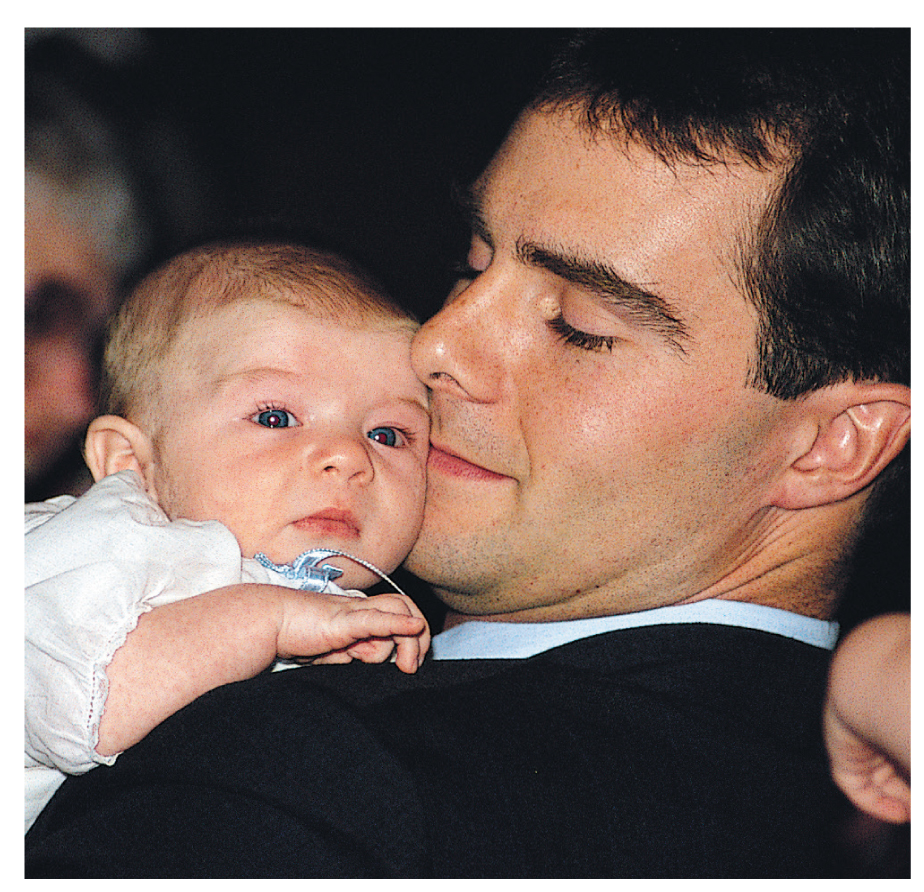
Christmas celebrates the most ordinary of earthshaking events—the birth of a child. Just as ripples ring outward from a stone dropped in water, so the birth of every child affects parents, children, relatives, neighbors—all those around him or her.
The parents who hear the Christmas gospel—their own children perhaps still tugging at their knees—can fill in the family responsibilities Luke’s account assumes. Mary and Joseph must feed and clothe their new baby, rock and bathe him, teach him to talk and walk, play peek-a-boo, and keep him from danger. The gospel testifies that Jesus grew in wisdom and grace in his family.
Many people today may identify with how unusual Jesus’ family is. His mother is not married when he is conceived. His mother’s husband is not Jesus’ real dad. His mother is still a virgin, perhaps still a teenager.
Mary and Joseph face all the challenges any child presents new parents, but Luke’s story also tells us their baby is extraordinary—the savior, the messiah, God’s Son. These titles make claims about who Jesus is that eventually get him arrested and condemned to death.
Christmas celebrates the significance of Jesus’ whole life in his birth. Luke’s gospel and the Christmas Liturgy of the Word fill the story of Jesus’ birth with the significance of his whole redemptive life. The birth narrative is no realistic video in narrative form, but a story carefully crafted to communicate to every hearer the same tidings of great joy the shepherds hear. A savior has been born to us. The messiah that Israel has long awaited has come. God’s own Son is with us. Each statement proclaims the whole gospel in summary.
- What experiences of your children’s birth do you bring to hearing the Christmas gospel?
- What makes you aware that Jesus’ birth story reflects on his whole life story?
- To whom do you relate most easily—the Christ child or the crucified messiah?
Angels are the ones who know who Jesus is in Luke’s gospel. They come from the heavens to announce his identity to humble shepherds. Luke has the angels give the shepherds—and us—a sign. The sign is the baby, lying in a manger.
A manger is a feed trough, so Jesus’ first crib hints that he will give his life to nourish ours. More directly to the point, a manger is a place of very low status, a place among animals at the margin of human society. Luke wants us hearers of his story to recognize with the shepherds that this child is good news for the poor. The Son of the Most High is joy to poor shepherds and safe with temporarily homeless parents.
Caesar, on the other hand, has an interest in the story in counting the potential taxpayers in his empire. Caesar’s census brings so many descendants of David to Bethlehem to register that Jesus begins life in a world without room for him or his parents.
Luke wants us to contrast the child and Caesar. People hail both as saviors. However, it is the child lying in the manger who incarnates the love and life-giving power of the universe, not the emperor, even though his subjects give him the title Augustus—the divine.
- Where might Jesus be born today to express God’s willingness to identify with the lowliest among us?
- What power does Jesus the Christ exert in our world compared with the power of today’s Caesars? What power in your life?
The shepherds hurry to Bethlehem to check out the sign the angels give them. They tell Mary and Joseph the good news the angels told them. A savior has been born in Bethlehem who is Christ the Lord. The word Christ means messiah. When we say that Jesus is Lord, this means he is God.
According to the gospel, Mary treasures the shepherds’ words and ponders them in her heart. Only the events that climax Jesus’ life will fully reveal the significance of these titles—savior, Christ, Lord. Mary models faith as an ongoing process. She holds onto what she cannot yet interpret.
At the annunciation Mary commits herself to God’s word. She puts her whole self at God’s service. Her commitment gives her no foreknowledge; rather like all of us, she gets insight only over time as events unfold. The Word God conceives in her develops not only normally in the womb but also gradually in her life experience of raising her son and standing by him.
Mary proclaims in her Magnificat that God has raised up the lowly in calling her. Her prayer is prophetic. God will also raise up this son of hers who begins life in a manger and completes his life on the cross. Writing in A.D. 80, Luke knows Jesus’ whole story. His infancy narratives testify that this child is the true savior of the world.
- When you look back on Jesus’ birth from our vantage point in the third millennium, what do you see as Jesus’ significance?
- Who are the lowly who most concern you this Christmas? How can you or your Christian community help raise them up?
